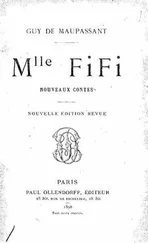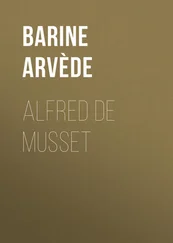Arvède Barine - La Grande Mademoiselle
Здесь есть возможность читать онлайн «Arvède Barine - La Grande Mademoiselle» — ознакомительный отрывок электронной книги совершенно бесплатно, а после прочтения отрывка купить полную версию. В некоторых случаях можно слушать аудио, скачать через торрент в формате fb2 и присутствует краткое содержание. Жанр: foreign_antique, foreign_prose, на английском языке. Описание произведения, (предисловие) а так же отзывы посетителей доступны на портале библиотеки ЛибКат.
- Название:La Grande Mademoiselle
- Автор:
- Жанр:
- Год:неизвестен
- ISBN:нет данных
- Рейтинг книги:5 / 5. Голосов: 1
-
Избранное:Добавить в избранное
- Отзывы:
-
Ваша оценка:
- 100
- 1
- 2
- 3
- 4
- 5
La Grande Mademoiselle: краткое содержание, описание и аннотация
Предлагаем к чтению аннотацию, описание, краткое содержание или предисловие (зависит от того, что написал сам автор книги «La Grande Mademoiselle»). Если вы не нашли необходимую информацию о книге — напишите в комментариях, мы постараемся отыскать её.
La Grande Mademoiselle — читать онлайн ознакомительный отрывок
Ниже представлен текст книги, разбитый по страницам. Система сохранения места последней прочитанной страницы, позволяет с удобством читать онлайн бесплатно книгу «La Grande Mademoiselle», без необходимости каждый раз заново искать на чём Вы остановились. Поставьте закладку, и сможете в любой момент перейти на страницу, на которой закончили чтение.
Интервал:
Закладка:
We were all dressed in colours [recounts Mademoiselle]. We were on fine, ambling horses, richly caparisoned, and to guarantee us against the sun each of us had a hat trimmed with a quantity of plumes. They always turned the hunt so that it should pass fine and handsome houses where grand collations could be found, and, coming home, the King placed himself in my coach, between Mme. de Hautefort and me. When he was in good humour he conversed very agreeably to us of everything. At that time he suffered us to speak freely enough of the Cardinal de Richelieu, and the proof that it did not displease him was that he spoke thus himself.
Immediately after the hunting party returned they went to the Queen. I took pleasure in serving at her supper, and her maids carried the dishes (viands). There was a regular programme. Three times a week we had music, they of the King's chamber sang, and the most of the airs sung by them were composed by the King. He wrote the words, even; and the subject was never anything but Mme. de Hautefort. The King was in humour so gallant that at the collations that he gave us in the country he did not sit at table at all; and he served us nearly everything himself, though his civility had only one object. He ate after us, and did not seem to feel more complaisance for Mme. de Hautefort than for the others, so afraid was he that some one should perceive his gallantry.
Despite these precautions, the Court and the city, Paris, and the province were informed of the least incidents of an affair of such importance. The only person whom the King's passion left indifferent was the Queen. Anne of Austria had never been jealous. She did not consider Louis XIII. worth the pains of jealousy, – and now jealousy would have been out of place. Anne, after twenty-three years of marriage, was enceinte . The people who had loaded her with outrages while she was bowed by shame now knelt at her feet, sincere in their respectful demonstrations of devotion for the wife of the King who might one day become Queen-mother, or even Regent of France. It was like one of the fairy plays in a theatre. Nature had waved her wand, and the disgraced victim of enchantment had arisen "clothed on with majesty." It was an edifying and delightful transformation. After all her shame, the novelty of being cared for and treated gently was so great and so agreeable that when she saw her royal spouse sighing before the virtuous and malignant de Hautefort – "whose chains" were said to be heavy and hard to bear – she looked upon it very lightly. Anne of Austria smiled at the benumbed attitudes of the King, at his awkward ardour, and equally awkward prudery. The Queen learned with amusement that when among her companions, the young girls of the Court, Mlle. de Hautefort mocked the King, and boasted that he "dared not approach her, though he maintained her," and that she was "bored to death by his talk of dogs, and birds, and the hunt." Friends repeated these criticisms. Louis XIII. heard of them and took offence "at the ingrate," and the Court went into mourning. "If there should be some serious quarrel between them," wrote Mademoiselle, "all the comedies and the entertainments will be over. At that time, when the King came to the Queen's apartments, he did not speak to anybody, and nobody dared to speak to him. He sat in a corner, and very often he yawned and went to sleep. It was a species of melancholy which chilled the whole world, and during this grief he passed the most of the time writing what he had said to Mme. de Hautefort, and what she had answered. It is so true that after he died they found great bundles of papers recounting all his differences with his mistresses – to the praise of whom it must be said, and to his praise also, that he had never loved any women who were not very virtuous."
Mademoiselle never seemed to realise the political importance of the King's favourites. That subject, like all else serious, escaped her. She writes:
"I listened to all that they told me – all that I was old enough to hear."
We need not hope to learn from her what Richelieu thought of the King's chaste affection; why, though he had encouraged it, he was angered by it; why he looked with disfavour upon Mlle. de Lafayette, and manipulated her affairs so well that he introduced her into the cell of a convent, and ordered the King to take medicine whenever he suspected that Louis aspired to contemplate her through the grating of her prison; if Mademoiselle had ever known such things "they had never presented themselves to her memory." Nor will it do us any good to search her memoirs for reasons making it clear why Louis XIII., who worked incessantly against Richelieu, and "did not love him," sacrificed, for the Cardinal's pleasure, all his friends and near relations. Throughout all the reverses of 1635 and 1636, when France was trembling under the trampling feet of the invader, when the enemy's skirmishers lay at the gates of Pontoise, the King was faithful to the dictator, whose policy had drawn ruin on the nation. Mademoiselle had never known these things. They had been far below her horizons. The ungrateful years had buffeted her as they passed. She had been pretty and sprightly in early childhood. At the age of eleven she was a buxom girl, with swollen cheeks, thick lips, and a stupid mien, – in a word: a frankly ill-favoured creature, too absorbed in the preoccupations of animal life (the need to skip and jump, to be seen and heard) to listen, to observe, or to reflect. The Queen's condition gave her one more occasion to manifest the lengths to which she had carried her innocence, though she had lived in a world where innocence was not regarded as the most important item in an outfit. She rejoiced that there was to be a Dauphin. Evidently she did not know that his advent would strip her father of his rights as heir-presumptive to the throne. In her own words, she "rejoiced without the least reflection." Anne of Austria was touched by a simpleness of heart to which her life had not accustomed her. "You shall be my daughter-in-law!" she cried repeatedly to her young niece. For she could not bear the thought that the child's later reflections might awake regret.
Mademoiselle embraced the idea only too ardently, and to it she owed one of the bitterest hours of her existence.
The child who was to be Louis XIV. was born at the Château of Saint Germain, 5th September, 1638. Mademoiselle made him her toy. She writes: "The birth of Monsieur the Dauphin gave me a new occupation. I went to see him every day and I called him my little husband . The King was diverted by this and he thought that I did well." She had counted without her godfather the Cardinal, who was more of a Croquemitaine, and more of a spoil-sport than he had ever been. He considered her childish talk very indecorous. Mademoiselle pursues:
Cardinal de Richelieu, who does not like me to accustom myself to being there, nor to have them accustomed to seeing me there, had me given orders to return to Paris. The Queen and Mme. de Hautefort did all that was possible to keep me. They could not obtain their wish, – which I regretted. It was all tears and cries when I left there. Their Majesties gave many proofs of friendship, especially the Queen, who made me aware of a particular tenderness on that occasion. After this displeasure I had still another to endure. They made me pass through Rueil to see the Cardinal, who usually lived there when the King was at Saint Germain. He took it so to heart that I had called the little Dauphin my little husband that he gave me a great reprimand: he said that I was too large to use such terms; that I had been ill-behaved to do so. He spoke so seriously – just as if I had been a person of judgment – that, without answering him, I began to weep. To pacify me he gave me collation, but I did not pass it over. I came away from there very angry at all he had said to me.
Читать дальшеИнтервал:
Закладка:
Похожие книги на «La Grande Mademoiselle»
Представляем Вашему вниманию похожие книги на «La Grande Mademoiselle» списком для выбора. Мы отобрали схожую по названию и смыслу литературу в надежде предоставить читателям больше вариантов отыскать новые, интересные, ещё непрочитанные произведения.
Обсуждение, отзывы о книге «La Grande Mademoiselle» и просто собственные мнения читателей. Оставьте ваши комментарии, напишите, что Вы думаете о произведении, его смысле или главных героях. Укажите что конкретно понравилось, а что нет, и почему Вы так считаете.












